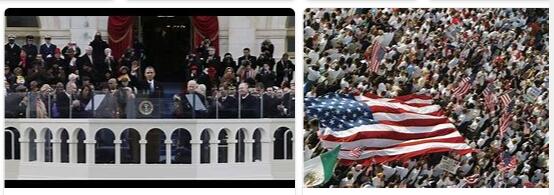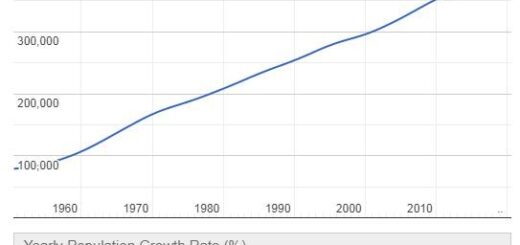United States in the 21st Century
On January 20, 2001, George W. Bush took office in the White House and became the forty-third president of the United States. At the end of a controversial electoral round played on the thread of head to head – and which also became a judicial battle – the democratic challenger Al Gore on 13 December 2000 had in fact renounced a new count of the ballots and decided to accept the results in the name of National unity. Thus ended a decade characterized by the presence of Democrat Bill Clinton in the White House while the new President Bush, whose political creed was marked by the doctrine of compassionate conservatism, immediately gave a change of course to US policy, both internally and internationally. On the domestic front, in fact, he immediately worked for a tax reduction, especially for the wealthiest sections of the population considered the engine of the market economy, and for a reduction in welfare and the active role of the state in the life of citizens; on the foreign front, it refused to ratify the Kyoto agreements by 2010 (see Kyoto protocol) of 1997 on the reduction of greenhouse gas emissions and insisted on the line proposed in the electoral campaign, for which the United States was the democratic superpower destined to act as guarantor of world balance and international peace, placed above relations and of agreements between states and authorized to act even unilaterally. This new political vision of the United States was definitively sealed with the attacks of 11 September 2001, when the grandeur and tragedy of the event offered the Bush administration an opportunity for the recognition of a new mission, that of leading the world in the war on international terrorism. The decision was thus quickly reached to attack Afghanistan ruled by the Taliban, the Islamic fundamentalists who gave refuge to Osama bin Laden (Usāma ibn Lādin), head of the terrorist organization al-Qā‛ida and responsible for the terrorist attack; acting autonomously, albeit with the support of the United Nations, the USA began a war that from a military point of view lasted very little, but which, not accompanied by an effective policy of peacekeeping and aid to the Afghan population, appeared in reality the result failed (Bin Laden himself escaped capture). If it is true that the Taliban regime collapsed very quickly and the president’s popularity immediately reached very high levels, the war in Afghanistan bogged down the US forces in a hotbed of crisis that repeatedly during the first decade of the 21st century was in danger of becoming inflamed. Despite this, 2002 was a favorable year for the Bush administration, which managed to get the National security strategy approved, which theorized the right to preventive war to defend the country, focusing on three main scenarios: the Israeli-Palestinian conflict, the nuclear programs of North Korea and therefore Iraq, considered a leading exponent of the triad of states(Iraq, Iran and North Korea) defined axis of evil . Precisely the urgency to bring about a change of regime in Iraq to favor a general process of Middle Eastern pacification represented a turning point in US foreign policy. As already in the Afghan campaign it was a question of showing off an extraordinary display of strength in front of the world, reaffirming that the hegemony of the United States was not in question, a ‘struggle for freedom’ was inaugurated, as was repeatedly announced by the Bush himself, who allegedly committed the United States to defend their territory and export democracy to the world, a mission that fit perfectly with the geopolitical objectives to be achieved in the Middle East. Although in the same period the national economy began to enter a phase of slow decline, also undermining internal social stability, Bush, president of war, he managed to win the mid-term elections (November 2002), and the Republicans also obtained a majority in the senate, which thus quickly approved the establishment of a ministry for internal security and the fight against terrorism: the mission for the expansion of democracy was thus further sealed, legitimizing de facto the beginning of the war on the axis of evil. Months of intense diplomatic negotiations followed, but in March 2003 the United States still decided to attack Iraq without the backing of the United Nations, supported only by Great Britain, Spain, Italy, Portugal, Denmark and Poland, creating a crack in within the Atlantic Alliance and launching into a war with an uncertain outcome. The military action turned out to be brief and in a month put an end to Saddam Hussein’s regime (Ṣaddām Ḥusayn), but the guerrillas, which set fire to Iraq in the aftermath of the deposition of the rais, continued to shake Iraq for the next four years, making the US attempt to pacify the whole territory difficult. Penalized by the Iraqi situation, which worsened even after the, Bush presented himself in the 2004 presidential elections appealing to the defense of ethical-moral values, indicated as paradigms of the solidity and righteousness of American democracy and capable, in this sense, of reassuring and giving stability to a wounded nation. The great capacity for popular mobilization around the themes of the fight against terrorism and the usual reluctance of the US electorate to change administration during a conflict contributed to Bush’s victory, but the second term soon proved to be a failure. In fact, the continuation of the war in Iraq in an increasingly unfavorable position, the emergence of scandals within the majority, the inefficiency and disastrous management of relief efforts for the emergency following the passage of Hurricane Katrina in the Gulf of Mexico and in the New Orleans area in August 2005, significantly reduced the popularity of the president, so much so that, in 2006, the mid-term elections the Republicans lost both in the House and in the Senate. The debate on the failure of the military campaigns in Afghanistan and Iraq heavily invested the republican administration: in fact, if it was true that weapons had canceled the enemy regimes of the Taliban and S. Hussein, chaos and civil war had taken their place. representing a far greater threat to the stability of the region. Signs of a significant change of course in the conduct of war were both the appointment of DH Petraeus as head of the armed forces in Iraq (2007), and the start of a new pacification strategy in Iraqi territory through a political opening to Sunni insurgents. and a large expenditure of money to overcome the hostility of the tribal leaders. Despite the success of this initiative, Bush’s presidential image gradually crumbled, bringing the Democrats back to center stage. The latter, once again invested by the expectations of reviving the American dream, undertook the usual primary consultations, which drew the country’s media attention to two new figures in the presidential competition: a woman, Hilary Rodham Clinton, and an African American, Barack Hossein Obama. It was he, at the dawn of November 5, 2008, who became the new president of the United States, drastically reversing the course hitherto followed in the decade of the Bush administration. The program with which Obama was elected, in fact, was mainly focused on supporting employment, easing the tax burden for families and businesses, on a principle of welfare and on the possibility of public investments in infrastructures and renewable energy, all pillars. economic, political and social largely unrelated to liberal ideologies Americans and certainly hated by the old republican guard. Obama, behind the slogan Yes we can, embodied the desire to relaunch a nation on which the scent of the economic crisis began to fall and of a country that wanted to regain its role on the world stage without having to show off military strength, an example of democracy to be exported first of all with the aid from diplomacy and an undisputed cultural hegemony. In this sense, Obama immediately tried to shake off years of one-sidedness in the field of international politics, relaunching the peace negotiations for the Israeli-Palestinian question, the fight against nuclear rearmament and a concrete hypothesis for a solution to the Iraqi question. These intentions earned him the award of the Nobel Peace Prize in 2009 even before being transformed into reality, a conferment that further denoted the profound emotional impact that his election had had not only in the United States, but throughout the world. Over time, however, the economic and financial crisis generated by the housing mortgage bubble advances subprime, the exponential increase in unemployment, the need for a new dispatch of men to Iraq and Afghanistan and the largest environmental disaster in US history, due to the massive oil spill from the Deepwater horizon platform, in the Gulf of Mexico (April 2010), caused the president’s popularity to drop rapidly, leading to a resounding defeat in the mid-term elections (October 2010), which cost the Democrats a chamber. Despite the poor electoral result, over the next two years Obama strenuously defended the main points of his program, succeeding where no administration had gone before, or in the launch of a health reform that extended to thirty-two million Americans the insurance coverage. Of great emotional impact was the capture and killing of Bin Laden (May 2011), a result strongly sought after the 10th anniversary of September 11th. Along the same lines, the US exit from Iraq (December 2011) and the start of the withdrawal from Afghanistan, to be completed in 2014, as established at the NATO summit in Lisbon in 2010, they showed not only the concreteness of the electoral promises, but also the US readiness for forms of international cooperation for the resolution of armed conflicts. The attention shown towards the so-called Arab Spring and the attempt to contain Chinese expansionism in Asia, diverting part of the US attention from the Middle East to Southeast Asia, led to a return of popularity for Obama who, as a candidate for the 2012 presidential elections, won against the Republican MIT Romney both in the popular vote and among the big voters, despite many contrary predictions. The United States photographed by the vote, however, remains in a complex situation, with a divided Congress and a slow economic recovery, elements that currently weigh as unknowns on the national and, of course, international future.



